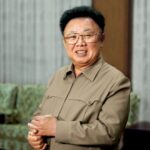Several Chinese economists forecast that the nation’s economy will grow about 2 percent this year while posting “a strong rebound” next year with 8 percent-plus growth, thanks in part to the country’s effective measures in containing the COVID-19 epidemic.
Given the remarkable consumption during this year’s Double 11 shopping spree, China’s economic growth may exceed 6 percent in the fourth quarter of 2020, with annual growth reaching 2-2.2 percent, especially as the country is building a new development pattern centered on domestic growth, with domestic and foreign cycles reinforcing each other, Cao Heping, an economist at Peking University, said at the Global Times’ annual forum on Saturday.
In the first three quarters of this year, GDP reached 72.27 trillion yuan ($11 trillion), up 0.7 percent year-on-year based on comparable prices. GDP fell 6.8 percent in the first quarter, grew 3.2 percent in the second quarter, and rose 4.9 percent in the third quarter.
Cao pointed out that the epidemic didn’t result in permanent damage to domestic consumption, as it took less than 90 days for China to get the outbreak largely under control. Although there were surges in COVID-19 cases sporadically in areas such as Northeast China’s Heilongjiang and Beijing, they were swiftly put under control.
“Growth momentum of demand and innovation continue, and the export sector’s performance is not bad,” he said, noting that GDP growth may reach 8.4 percent in 2021.
The Purchasing Managers’ Index (PMI) has stayed above 50 since March, while the non-manufacturing PMI reached 56.4 in November, showing that the country’s high-end manufacturing and digital consumption saw fast growth. In addition, a total of 8.98 million jobs were added in the first three quarters, completing 99.8 percent of the annual goal.
Mei Xinyu, a research fellow at the Chinese Academy of International Trade and Economic Cooperation, also holds an optimistic outlook for China’s economic growth for 2021, saying that 8-percent growth is likely.
However, he said that external and potential risks remain, for example, the incoming Biden administration may adopt political tools to crack down on Chinese exports rather than tariffs.
“Due to this year’s epidemic, a new round of economic and financial crises may occur in some emerging markets,” he said, noting that the negative effects of large-scale monetary easing will become more apparent next year.
He Weiwen, a former senior trade official and an executive council member of the China Society for World Trade Organization Studies, said at the same forum that the country’s economic growth next year will be an internal matter, while external factors such as the China-US trade conflict will not be decisive.
He said that China may encounter more challenges after Biden enters the White House, as Donald Trump and Biden both seek to maintain US hegemony but Biden will uphold ties with allies.
People visit a shopping mall at Tianjin’s Hexi district on Saturday, as the district allocated 5 million yuan ($706,085) in vouchers to promote business recovery at a local consumption festival. The district plans to issue a total of 22.5 million yuan in vouchers to boost the economy. Cover Photo: VCG
Global Times


